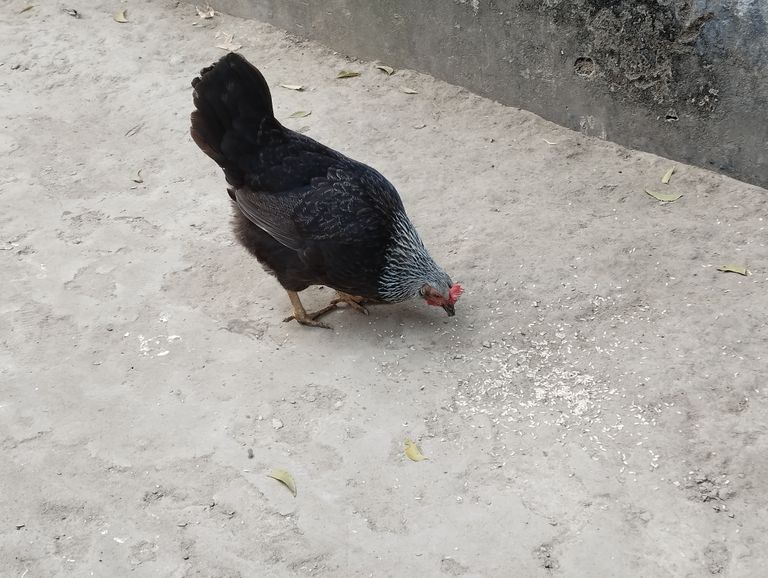
Feeding Desi Chickens A Complete Guide.
Desi chickens, also known as indigenous or native chickens, are widely popular for their natural adaptability, disease resistance, and high-quality eggs and meat. However, to maximize their productivity and maintain their health, it’s crucial to provide them with a balanced diet. In this guide, we’ll explore the essential feeding practices for desi chickens, covering nutritional needs, natural feed options, and cost-effective strategies.
- Understanding the Nutritional Needs of Desi Chickens
Desi chickens require a diet rich in essential nutrients to ensure optimal growth, egg production, and immunity. Their diet should contain:
Carbohydrates: Provide energy for daily activities. Sources include grains like maize, wheat, and rice.
Proteins: Crucial for muscle development and egg production. Include legumes, soybean meal, or insects like earthworms.
Fats: Help store energy and improve the quality of eggs. Sunflower seeds and oilseed cakes are good options.
Vitamins and Minerals: Essential for immunity and overall health. Green vegetables, crushed eggshells, and bone meal can fulfill these requirements.
Water: Always provide clean and fresh water, as it is vital for digestion and overall well-being.
- Natural Feed Options for Desi Chickens
One of the advantages of raising desi chickens is their ability to forage and consume natural food sources. This makes them low-maintenance while still providing high returns. Some natural feed options include:
- Kitchen Waste: Vegetable scraps, rice leftovers, and fruit peels can supplement their diet. Avoid salty or oily food.
- Greens: Fresh grass, spinach, and other leafy vegetables are excellent sources of vitamins.
- Insects: Allowing chickens to roam freely in the backyard enables them to consume insects, worms, and small pests, providing natural protein.
- Grains: Broken rice, maize, or wheat can be mixed into their feed.
- By-products: Oilseed cakes, rice bran, and molasses are cost-effective yet nutritious options.
- Feeding Stages for Desi Chickens
The nutritional requirements of desi chickens vary with age and purpose (meat or eggs). Here's a breakdown:
Chicks (0-8 weeks):
Protein-rich starter feed is essential for growth.
Offer crushed grains and finely chopped greens.
Growers (8-20 weeks):
Balanced grower feed helps in skeletal and muscle development.
Include a mix of grains, greens, and protein sources.
Layers (Egg-laying stage):
High-calcium feed to enhance eggshell quality.
Provide crushed eggshells, bone meal, or calcium supplements.
Broilers (Meat production):
Energy-dense feed with moderate protein levels ensures faster weight gain.
- Homemade Feed Recipes for Desi Chickens
Creating homemade feed is a cost-effective and healthy way to ensure your chickens get the nutrients they need.
Example Feed Recipe for 10 Chickens (Daily):
1 kg maize (ground)
500 g wheat or rice bran
200 g soybean meal or oilseed cake
100 g crushed eggshells or bone meal
200 g chopped greens or vegetable scraps
Mix all ingredients thoroughly before feeding.
Feeding Tips for Optimal Productivity
Provide Feed in Intervals: Feeding twice daily—morning and evening—helps maintain energy levels.
- Ensure Clean Feeding Areas: Use clean and dry feeders to prevent contamination.
- Encourage Foraging: Allow chickens to roam freely to reduce feed costs and improve their health.
- Monitor Health: Observe feeding habits; sudden changes in appetite may indicate illness.
- Seasonal Adjustments: During winter, increase energy-rich feed to help maintain body temperature.
- Common Feeding Mistakes to Avoid
Overfeeding: Can lead to obesity and reduced productivity.
Imbalanced Diet: Lack of key nutrients can cause health issues.
Using Spoiled Feed: Always check for mold or spoilage, as it can harm chickens.
Ignoring Water Quality: Dirty water can lead to diseases.
- Benefits of Proper Feeding for Desi Chickens
Higher Egg Production: A nutritious diet improves the quantity and quality of eggs.
Better Meat Quality: Well-fed chickens produce tender, flavorful meat.
Improved Immunity: A balanced diet reduces susceptibility to diseases.
Cost Savings: Proper feeding reduces wastage and ensures efficient growth.
Feeding desi chickens the right way ensures their health, productivity, and profitability. By understanding their nutritional needs and providing natural, cost-effective feed options, you can raise a thriving flock. With proper care and attention, desi chickens can become a sustainable source of quality meat and eggs for your household or business.
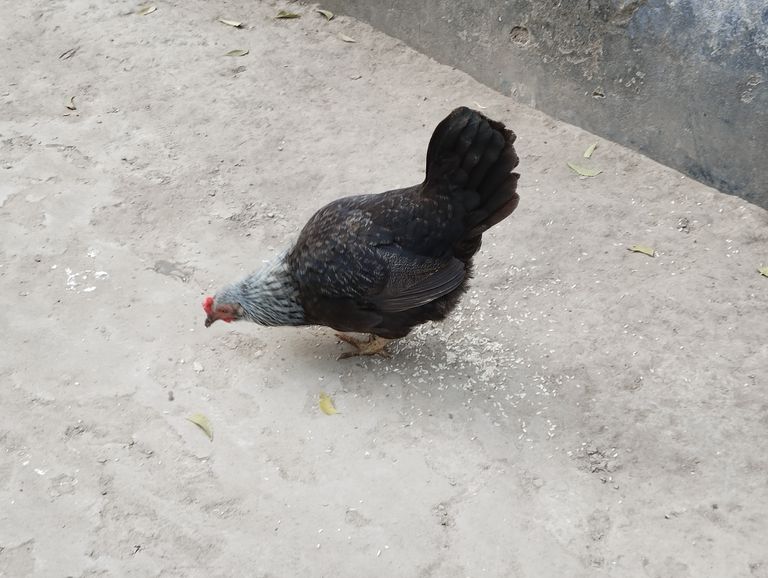
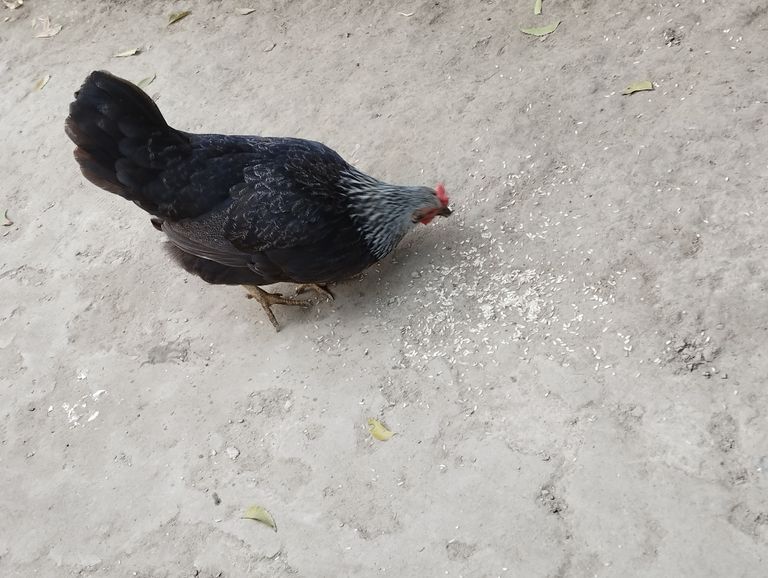
Raising Indigenous Chickens: A Complete Guide
Indigenous chickens, commonly referred to as "deshi murgi," are an integral part of rural farming in many parts of the world, especially in South Asia. These chickens are known for their adaptability, hardiness, and the high nutritional value of their eggs and meat. This article provides a detailed guide to raising indigenous chickens successfully.
Why Raise Indigenous Chickens?
- Adaptability: Indigenous chickens are highly adaptable to local climatic conditions. They thrive in free-range systems and require minimal supervision.
- Cost-Effective: Since they can forage for food, the cost of feeding is significantly reduced compared to commercial breeds.
- Health Benefits: The eggs and meat of indigenous chickens are free from chemicals, making them a healthier choice.
- Disease Resistance: These chickens are naturally resistant to many common poultry diseases, reducing the need for frequent medical interventions.
- Market Demand: There is a high demand for deshi chicken products due to their superior taste and quality.
Selecting Breeds
Choose chickens that are native to your region. Some popular indigenous chicken breeds include:
Aseel: Known for their strong build and excellent meat quality.
Kadaknath: Famous for its black meat, which is rich in iron and other nutrients.
Giriraja and Gramapriya: Hybrid varieties suitable for both egg and meat production.
When selecting chicks, ensure they are healthy, active, and free from deformities.
Housing Requirements
Proper housing is crucial for the well-being and productivity of your chickens.
- Design: A simple structure with adequate ventilation, protection from predators, and weather-proofing is ideal.
- Space: Provide at least 1-1.5 square feet per bird in the coop.
- Perches: Include wooden perches inside the coop for the chickens to roost at night.
- Nesting Boxes: Install nesting boxes (one for every 4-5 hens) to encourage egg laying.
- Cleanliness: Regularly clean the coop to prevent disease outbreaks.
Feeding and Nutrition
Indigenous chickens can survive on foraged food, but providing supplementary feed ensures better productivity.
- Basic Feed: Grains like rice, maize, and wheat can be given as staple food.
- Protein Sources: Include protein-rich foods such as earthworms, soybean meal, or fish meal.
- Greens: Offer vegetables, grass, and kitchen scraps to ensure a balanced diet.
- Clean Water: Always provide access to fresh, clean water.
To enhance immunity and growth, mix vitamin and mineral supplements with their feed periodically.
Health and Disease Management
Although indigenous chickens are naturally hardy, they are not entirely immune to diseases.
- Vaccination: Vaccinate the chickens against common diseases like Newcastle disease, fowl pox, and Marek's disease.
- Deworming: Conduct deworming every 3-4 months.
- Monitoring: Observe the flock daily for signs of illness, such as lethargy, loss of appetite, or abnormal droppings.
- Biosecurity: Restrict access to the coop to prevent the spread of diseases.
If a bird shows symptoms of illness, isolate it immediately and consult a veterinarian.
Reproduction and Breeding
Indigenous chickens are excellent natural breeders. To maintain a healthy flock:
- Male-to-Female Ratio: Maintain a ratio of 1 rooster for every 8-10 hens.
- Hatching: Allow hens to brood naturally or use incubators for hatching eggs.
- Chick Care: Provide a warm and secure environment for newly hatched chicks. Feed them starter feed for the first six weeks.
Free-Range Farming
A free-range system allows chickens to forage freely, promoting natural behaviors and reducing feed costs.
- Area: Allocate a secure and spacious area for foraging.
- Shade and Shelter: Provide shaded spots and water points in the foraging area.
- Predator Protection: Use fencing or netting to protect chickens from predators.
Economic Aspects
Raising indigenous chickens can be a profitable venture. To maximize profits:
- Market Research: Identify local demand for eggs, meat, and chicks.
- Value Addition: Process chicken meat and eggs hygienically for better prices.
- Record Keeping: Maintain records of expenses, production, and sales to track profitability.
- Scaling Up: Gradually increase your flock size based on market demand and resources.
Challenges and Solutions
- Disease Outbreaks: Implement strict biosecurity measures and vaccinations.
- Predators: Secure housing and foraging areas with fencing.
- Seasonal Variations: Adjust feeding and housing during extreme weather conditions.
- Market Fluctuations: Diversify products to mitigate risks.
Raising indigenous chickens is not only a sustainable and profitable farming practice but also contributes to food security and rural livelihoods. With proper care, management, and marketing strategies, you can successfully establish and grow your indigenous chicken farming venture.
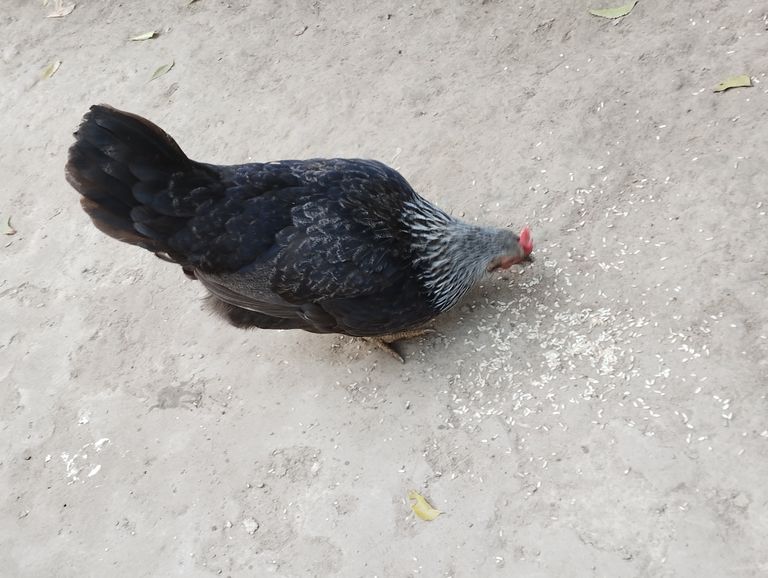
Health Benefits of Eating Eggs from Native Chickens
Native chicken eggs, also known as desi eggs, are renowned for their nutritional richness and distinct flavor. Unlike commercially produced eggs, desi eggs come from chickens raised naturally, often in free-range environments without the use of antibiotics or artificial feed. This makes them a healthier and more sustainable choice. Here’s a detailed look at the benefits of eating desi eggs:
- Rich in Nutrients
Desi eggs are a powerhouse of essential nutrients. They are packed with:
High-Quality Protein: Helps in building and repairing tissues and is essential for overall body function.
Vitamins: Rich in vitamins A, D, E, and B12, which boost immunity, improve vision, strengthen bones, and support the nervous system.
Minerals: Contain zinc, phosphorus, selenium, and iron, which aid in maintaining healthy bones, boosting immunity, and supporting metabolic processes.
- High Levels of Omega-3 Fatty Acids
Desi eggs contain a higher concentration of omega-3 fatty acids compared to factory-farmed eggs. Omega-3s are known for:
Reducing inflammation.
Improving heart health by lowering triglycerides.
Enhancing brain function and reducing the risk of cognitive decline.
- Better Taste and Quality
Native chicken eggs are known for their richer, creamier taste due to their natural diet and lifestyle. This makes them a preferred choice for culinary purposes, especially in traditional dishes.
- Lower Cholesterol Levels
While all eggs contain cholesterol, the cholesterol in desi eggs is considered healthier. These eggs also have a better balance of HDL (good cholesterol) and LDL (bad cholesterol), making them heart-friendly when consumed in moderation.
- Boosts Immunity
The natural lifestyle of desi chickens ensures their eggs are free from harmful chemicals, antibiotics, and hormones. This purity enhances the immune-boosting properties of the eggs, making them ideal for strengthening the body’s defenses against diseases.
- Improves Eye Health
Desi eggs are rich in lutein and zeaxanthin, antioxidants that play a significant role in protecting the eyes from age-related macular degeneration and cataracts.
- Supports Weight Management
Eggs are low in calories and high in protein, making them an excellent addition to weight loss or weight management diets. They provide a feeling of fullness, reducing overall calorie intake throughout the day.
- Good for Skin and Hair
The vitamins and minerals in desi eggs, particularly biotin, selenium, and protein, contribute to healthier skin and stronger hair. Regular consumption can promote a glowing complexion and reduce hair fall.
- Environmentally Friendly
Desi chickens are typically raised in free-range or organic conditions, which are more sustainable and environmentally friendly compared to commercial poultry farming. Choosing desi eggs supports local farmers and eco-friendly practices.
- Lower Risk of Antibiotic Resistance
Since native chickens are not exposed to antibiotics or synthetic growth hormones, their eggs are free from antibiotic residues. This reduces the risk of antibiotic resistance, a growing global health concern.
How to Incorporate Desi Eggs into Your Diet
Desi eggs can be used in a variety of ways:
Breakfast Options: Boiled, poached, or scrambled eggs.
Snacks: Egg salads or omelets.
Meals: Added to fried rice, curries, or stews for enhanced flavor and nutrition.
Desserts: Use them in baking cakes, cookies, or custards for a rich texture.
Incorporating desi eggs into your diet is a step towards a healthier lifestyle. Their superior nutritional profile, combined with their natural production process, makes them an excellent choice for all age groups. Whether you're looking to boost your immunity, improve heart health, or enjoy a delicious meal, desi eggs are a wholesome and flavorful addition to your diet.
By choosing desi eggs, you not only invest in your health but also support sustainable farming practices and local communities.
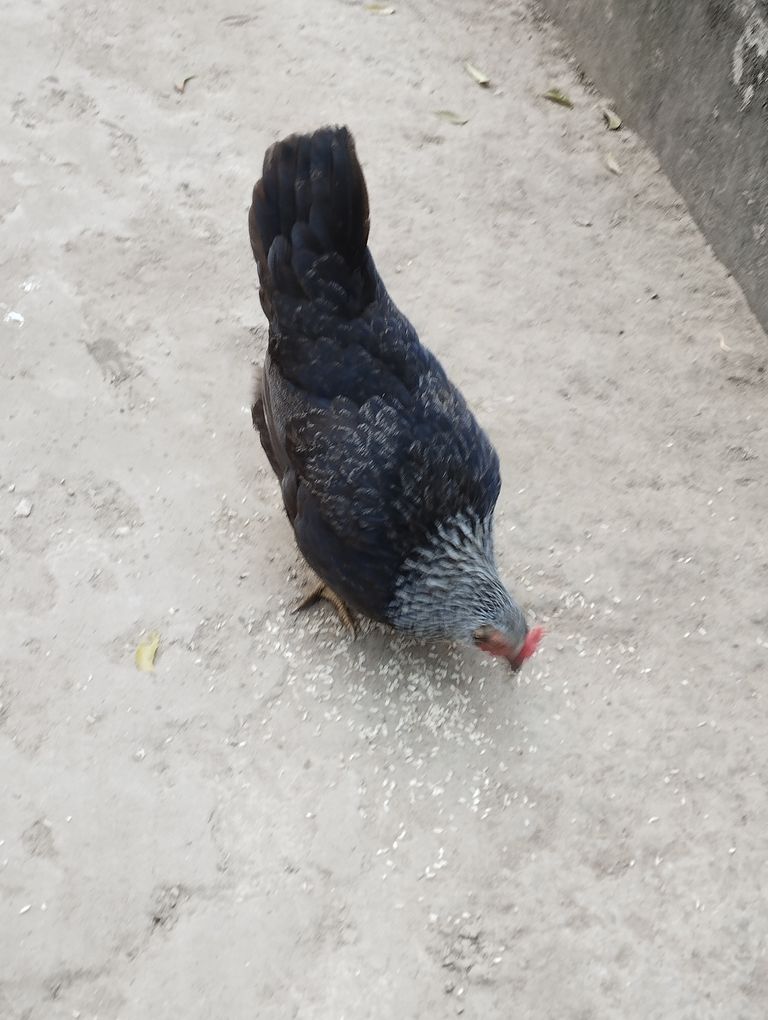
Deshi Murgir Roast Recipe: A Taste of Authentic Bangladeshi Cuisine
Deshi Murgir Roast, also known as Bengali-style chicken roast, is a beloved traditional dish in Bangladesh. This flavorful and aromatic preparation is often served at weddings, festivals, and family gatherings, paired with pulao, biryani, or plain rice. Its rich, spicy gravy and tender chicken make it a crowd-pleaser for anyone who craves authentic Bangladeshi flavors.
In this blog, we will delve into the step-by-step process of preparing Deshi Murgir Roast at home. Whether you’re an experienced cook or a beginner, this recipe will guide you to recreate the magic of this classic dish.
Ingredients
For the Marinade:
1 whole deshi chicken (approximately 1.5 kg), cut into medium pieces
1 cup plain yogurt
2 tablespoons ginger paste
2 tablespoons garlic paste
1 tablespoon red chili powder
1 teaspoon turmeric powder
2 tablespoons mustard oil
Salt to taste
For the Roast:
4 tablespoons ghee (clarified butter)
2 large onions, thinly sliced
1 teaspoon sugar (optional, for caramelization)
3-4 bay leaves
4-5 cardamom pods
3-4 cinnamon sticks
4-5 cloves
1 teaspoon cumin powder
1 teaspoon coriander powder
1 tablespoon garam masala powder
3 medium tomatoes, finely chopped
8-10 green chilies (adjust to taste)
1 cup warm milk
1/2 cup roasted nuts (cashews or almonds) and raisins (optional)
Instructions
Step 1: Prepare the Marinade
- Wash the deshi chicken thoroughly and pat it dry.
- In a large bowl, mix yogurt, ginger paste, garlic paste, red chili powder, turmeric powder, mustard oil, and salt.
- Add the chicken pieces to the marinade and coat them evenly. Cover and refrigerate for at least 2-4 hours or overnight for best results.
Step 2: Fry the Onions
- Heat ghee in a large pan or kadai over medium heat.
- Add the sliced onions and sugar (if using) and fry until golden brown and crispy. Remove half of the fried onions and set them aside for garnishing.
Step 3: Cook the Spices
- In the same pan, add bay leaves, cardamom, cinnamon, and cloves. Fry for 1-2 minutes until aromatic.
- Add cumin powder, coriander powder, and garam masala. Stir for a few seconds to release their flavors.
Step 4: Cook the Chicken
- Add the marinated chicken pieces to the pan. Cook on medium heat, stirring occasionally, until the chicken is lightly browned.
- Add the chopped tomatoes and green chilies. Cover and cook for 15-20 minutes until the tomatoes are soft and the chicken is tender.
- Stir in the warm milk and roasted nuts (if using). Cook for another 10 minutes until the gravy thickens and coats the chicken well.
Step 5: Garnish and Serve
- Transfer the roast to a serving dish.
- Garnish with the reserved fried onions and raisins.
- Serve hot with pulao, paratha, or plain steamed rice.
Tips for Perfect Deshi Murgir Roast
- Use Deshi Chicken: The unique flavor of deshi chicken sets this dish apart. If unavailable, opt for free-range chicken for a closer taste.
- Marination Time: The longer you marinate the chicken, the better the flavors will penetrate.
- Adjust Spices: You can tweak the spice levels to suit your preference, but the balance of garam masala and green chilies is key to an authentic taste.
- Cook Slowly: Allowing the chicken to simmer gently ensures tender meat and a rich gravy.
Why Deshi Murgir Roast is Special
Deshi Murgir Roast holds a special place in Bangladeshi cuisine due to its deep flavors and cultural significance. It’s not just a dish; it’s a celebration of heritage, tradition, and togetherness. Whether served at weddings or festive occasions, this roast embodies the warmth and hospitality of Bangladeshi culture.